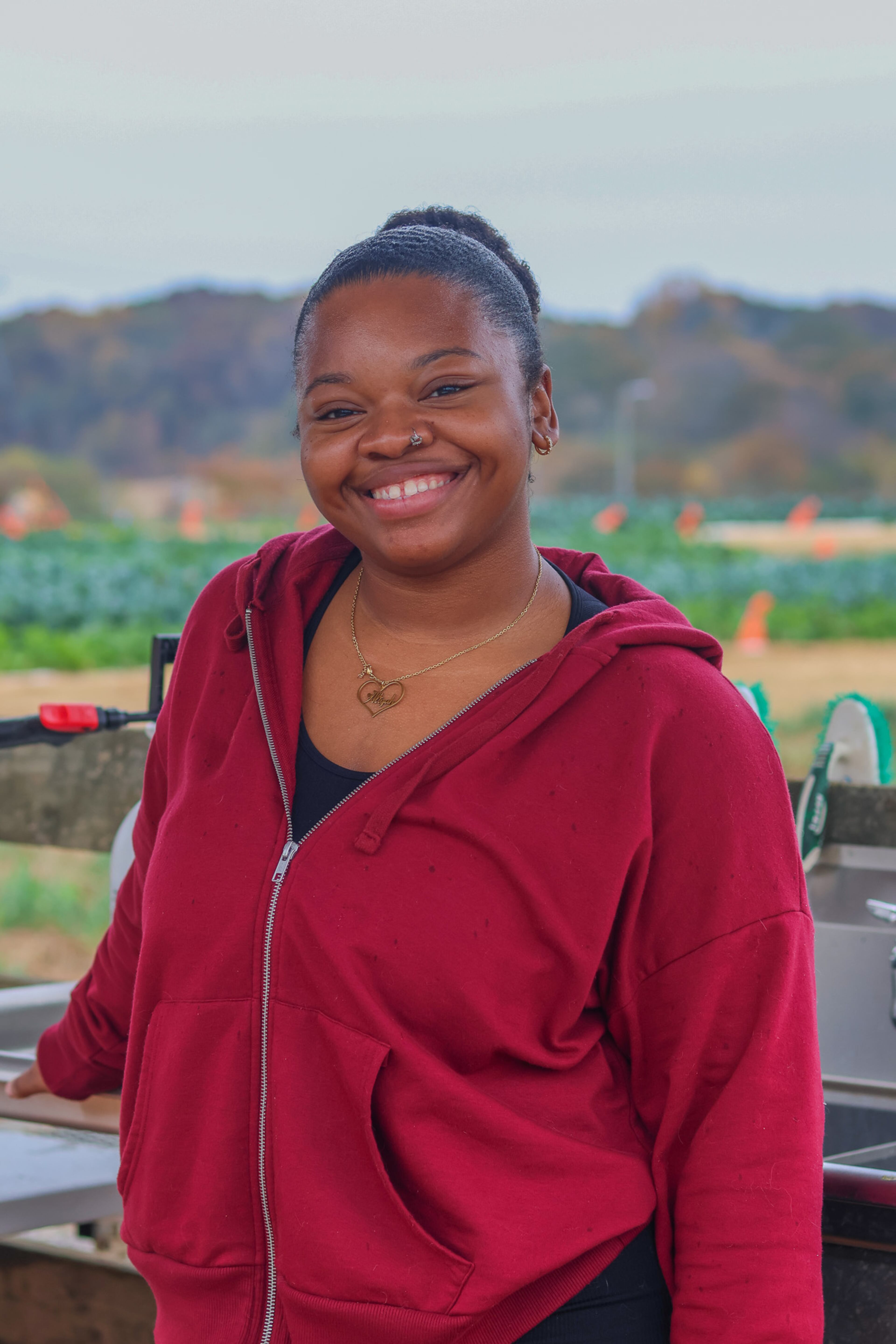Aliyah Williams’ ambition to end food insecurity is motivated by personal experience.
The University of Georgia student spent most of her childhood moving back and forth between Bridgeton, New Jersey and Lawrenceville, Georgia, with her three siblings and their mom. Williams said her mom struggled to put food on the table, often working two or sometimes three jobs.
Williams, now a senior pursuing bachelor’s degrees in criminal justice and psychology with a minor in sociology, said she strives to make her mom proud by helping families like hers as one of the first AmeriCorps Community Food Fellows at UGA.
“Everything I do is for her,” Williams said.

The fellows program is new for 2023. The cohort of 20 UGA students has committed to completing 900 hours of community service each from September 2023 to July 2024, for a staggering total of 18,000 hours. The students volunteer at organizations of their choice, primarily in the Athens area, ranging from food banks in Northeast Georgia to student-led advocacy organizations to helping in Clarke Central High School’s garden.
Williams works most closely with Campus Kitchen UGA, a student-led organization working to find and carry out sustainable solutions to alleviate hunger and food waste in the Athens area. Campus Kitchen partners with local organizations to serve over 1,000 meals to individuals and families in need. Williams served as an AmeriCorps VISTA summer associate with Campus Kitchen this year.
Williams said working with Campus Kitchen in various capacities — collecting food, preparing meals, delivering meals and doing administrative work — allowed her to see the whole process, “the minute the food comes in to the minute it goes out.”
While Williams’ primary goal is to help eliminate food insecurity in her community, it’s more than that. The work she does not only provides those in need with access to meals, but also helps address deeper systemic issues.
According to the U.S. Census Bureau, 26.6% of Athens-Clarke County individuals live in poverty. Children in Athens households not making a living wage have only about a 39% chance of earning a living wage in their lifetime, regardless of racial background, according to a 2019 report by the Network for Southern Economic Mobility. In addition, the Network reports 57.4% of Black households and 63.5% of Hispanic households in Athens-Clarke County do not make a living wage, which leaves these children at much higher risk of falling into intergenerational poverty.
“Generational cycles are very, very hard to break,” Williams said.
Her father was in and out of jail when a second income could have made the difference in her and her siblings’ lives, said Williams, who is now 22.
The volunteers she works with don’t always realize the extent of their impact, which can “literally change somebody’s life.” But the more Williams volunteered, the more she said she understood the positive impression she was making on her community.
The effect Campus Kitchen and other organizations have on residents, she said, is what “I wish my mom had.”
